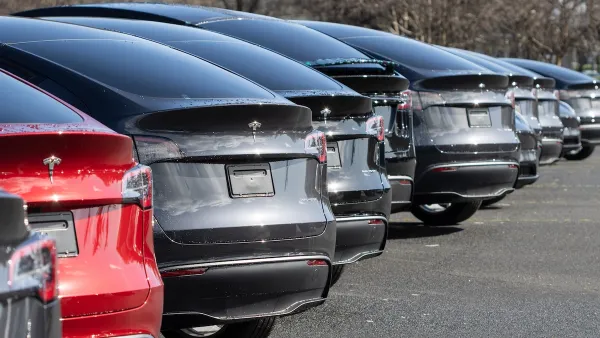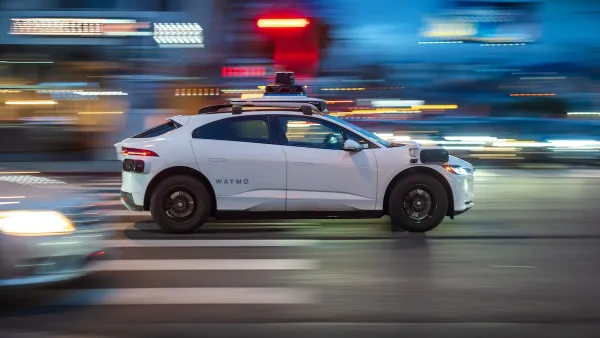The biggest state in the union is making room for self-driving cars, starting with four self-driving vans.
Driverless vehicles will begin picking up passengers for the first time in Texas, beginning in Frisco in July of this year.
Alison Griswold reports that the California-based company Drive.ai will launch a six-month pilot program that will operate four Nissan NV200s—"the same boxy van that roams New York City streets as a yellow taxi."
"Much like hailing an Uber, riders will summon one of Drive.ai’s vehicles using an app they install on their phones," according to Griswold. "For now, rides are free."
Drive.ai seems aware that the public consciousness about self-driving cars is mostly devoted to large companies like Uber, Waymo, and General Motors. "From day one, Drive.ai has positioned itself as the driverless car company that thinks most about these human-technology interactions," according to Griswold. "The vans rolling out in Frisco have LED screens on each side that can display short messages to other drivers and pedestrians, such as 'waiting for you to cross.'"
FULL STORY: Driverless car startup Drive.ai is launching a ride-hailing service in Texas

Planetizen Federal Action Tracker
A weekly monitor of how Trump’s orders and actions are impacting planners and planning in America.

Maui's Vacation Rental Debate Turns Ugly
Verbal attacks, misinformation campaigns and fistfights plague a high-stakes debate to convert thousands of vacation rentals into long-term housing.

Restaurant Patios Were a Pandemic Win — Why Were They so Hard to Keep?
Social distancing requirements and changes in travel patterns prompted cities to pilot new uses for street and sidewalk space. Then it got complicated.

In California Battle of Housing vs. Environment, Housing Just Won
A new state law significantly limits the power of CEQA, an environmental review law that served as a powerful tool for blocking new development.

Boulder Eliminates Parking Minimums Citywide
Officials estimate the cost of building a single underground parking space at up to $100,000.

Orange County, Florida Adopts Largest US “Sprawl Repair” Code
The ‘Orange Code’ seeks to rectify decades of sprawl-inducing, car-oriented development.
Urban Design for Planners 1: Software Tools
This six-course series explores essential urban design concepts using open source software and equips planners with the tools they need to participate fully in the urban design process.
Planning for Universal Design
Learn the tools for implementing Universal Design in planning regulations.
Heyer Gruel & Associates PA
JM Goldson LLC
Custer County Colorado
City of Camden Redevelopment Agency
City of Astoria
Transportation Research & Education Center (TREC) at Portland State University
Jefferson Parish Government
Camden Redevelopment Agency
City of Claremont





























